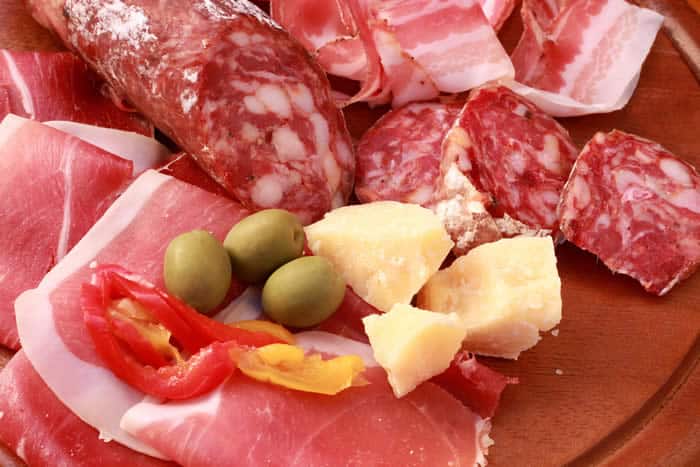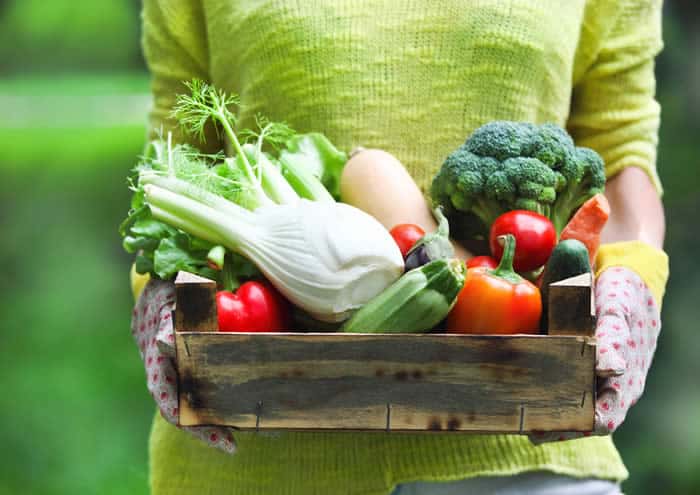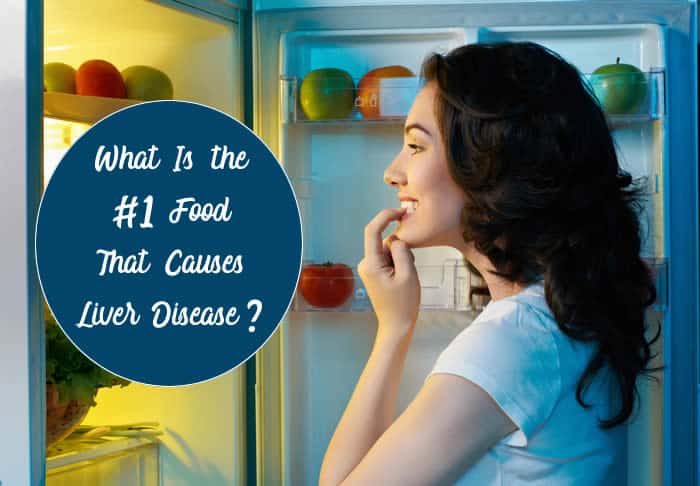
Previous
Is Broccoli Good for Fatty Liver?

Next
How Does Berberine Benefit Liver Health?
What Is the #1 Food that Causes Liver Disease?
Diet plays a crucial role in the health of your liver. Find out the top food group that can lead to liver disease, as well 5 foods that help support your liver.
Liver disease affects more than 100 million Americans, most of whom don’t even realize that there is anything wrong with this organ important for removing toxins and other waste from our bodies. (1) While several factors can contribute to poor liver health – such as being obese, drinking alcohol in excess, and even genetics – diet plays a critical role as well.
Impact of Food and The Development of Liver Disease
Research indicates that an unhealthy diet is the top factor contributing to nonalcoholic fatty liver disease (NAFLD), a condition now called metabolic dysfunction-associated steatotic liver disease (MASLD). (2) MASLD occurs when there is a buildup of excess fat in the liver due to reasons other than excess alcohol use.
One way that nutrition can affect liver health is by its impact on the gut microbiome. Animal studies have shown that eating a diet high in sugar and fat can increase a particular type of bacteria in the gut which is known to cause inflammation and scar tissue in the liver. (3)
Additionally, if you consume more calories than you use, your body stores the excess as fat. Some of this fat can be stored in the liver, making it harder for this organ to function as it should.
Top Food that Causes Liver Disease
Because diet plays such a critical role in liver health, many people ask, “What is the #1 food that causes liver disease?”
Unfortunately, there are two:
1. food that is high in saturated fat

2. and food that is high in added sugars. (2)

There are healthy fats and unhealthy fats. Unsaturated fats, like those found in nuts and seeds, are considered healthy in that they promote cardiovascular health and are good for the heart.
Saturated fats, which are found in butter and red meat, are the opposite in that they increase cholesterol in the blood, which also increases the risk of heart disease and stroke. (4) Saturated fat also contributes to excess liver fat buildup.
Foods high in added sugar influence liver health in a few ways. Not only does it increase liver inflammation, but eating a lot of sugar also affects appetite, making it easier to overeat. (2) Overeating leads to weight gain. One of the areas this weight or fat settles is the liver.
For these reasons, it’s best to choose foods with little to no saturated fat or added sugar. Foods high in saturated fat include butter, baked goods, processed meats, and cheese. The American Heart Association (AHA) recommends limiting saturated fat intake to no more than 6% of your total calorie intake daily. (5)
The AHA also suggests keeping sugar intake to no more than nine teaspoons per day for men and six teaspoons daily for women. (6) Desserts such as ice cream, cake, and cookies are high in added sugar. So are many condiments, some yogurts, and several other foods you might not expect. This makes reading food labels important when working to reduce your added sugar intake.
What Are the 5 Liver Support Foods?

Just as you want to know what foods to avoid when it comes to promoting liver health, it’s also helpful to know which ones to eat more of. According to a review of scientific research, these five foods can help support liver health: (7)
- Whole grains
- Fruits
- Vegetables
- Non-red meats (i.e., fish, turkey, and chicken)
- Beans and legumes
Creating a meal plan that centers around these foods is good for the liver, as well as for health in general. Look for ways to add them into your diet as much as possible, such as by choosing cereal or oatmeal for breakfast, eating a salad with chicken for lunch, and having fish with a side of vegetables and fruit for dessert at dinner.
Additional Tips for a Liver-Healthy Diet
When developing a diet that promotes optimal liver health, it’s also helpful to:
- Limit salt intake
- Reduce the amount of fast food you eat
- Choose baked or broiled foods over fried
- Stay hydrated by drinking adequate water throughout the day
The kinder you are to your liver through the foods you eat (and don’t eat), the more you help protect its ability to function. In other words, be good to your liver so it can be good to you.
(1) American Liver Foundation. (2023, September 11). How Many People Have Liver Disease? Retrieved May 20, 2024, from https://liverfoundation.org/about-your-liver/facts-about-liver-disease/how-many-people-have-liver-disease/
(2) Lujan, P., Esmel, E., Meseguer, E. (2021, April 24). Overview of Non-Alcoholic Fatty Liver Disease (NAFLD) and the Role of Sugary Food Consumption and Other Dietary Components in Its Development. Nutrients. doi:10.3390/nu13051442
(3) University of Missouri School of Medicine. (2023, March 23). Research Finds Linke Between Western Diets and Chronic Liver Disease. Retrieved May 20, 2024, from https://medicine.missouri.edu/news/research-finds-link-between-western-diets-and-chronic-liver-disease
(4) National Library of Medicine. (2022, June 22). Facts About Saturated Fats. Retrieved May 20, 2024, from https://medlineplus.gov/ency/patientinstructions/000838.htm
(5) American Heart Association. (2021, November 01). Saturated Fat. Retrieved May 20, 2024, from https://www.heart.org/en/healthy-living/healthy-eating/eat-smart/fats/saturated-fats
(6) American Heart Association. (n.d.). How Much Sugar is Too Much? Retrieved May 20, 2024, from https://www.heart.org/en/healthy-living/healthy-eating/eat-smart/sugar/how-much-sugar-is-too-much
(7) Mirmiran, P., Amirhamidi, Z., Ejtahed, H-S, et al. (2017, August). Relationship Between Diet and Non-Alcoholic Fatty Liver Disease: A Review Article. Iranian Journal of Public Health. https://www.ncbi.nlm.nih.gov/pmc/articles/PMC5575379/






